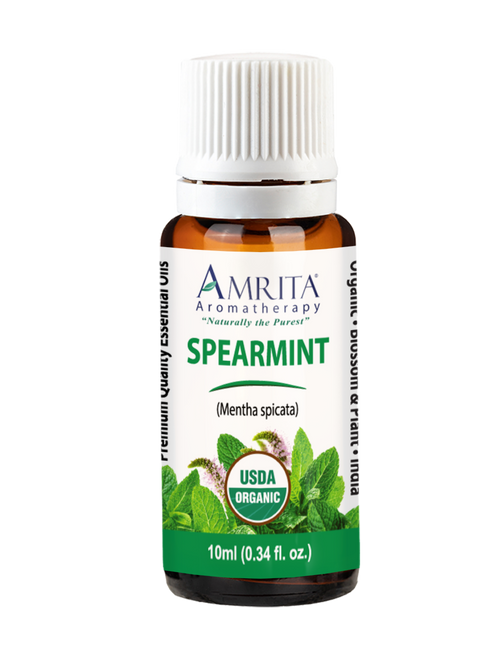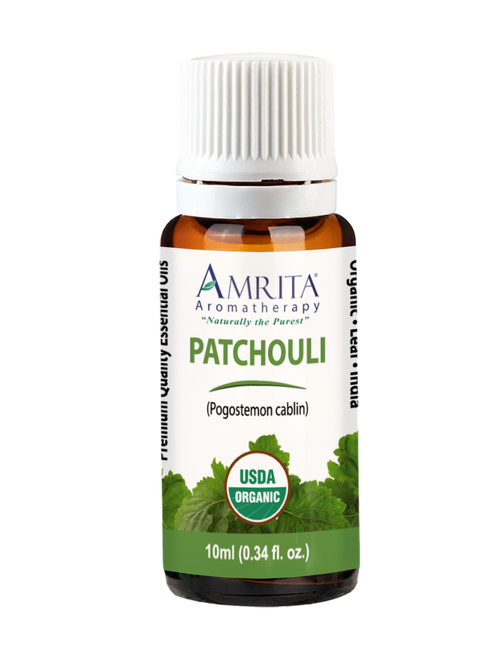- Other Names
- Orange Flower, Orange Blossom, and Neroli Bigarade
- Farming Method
- Certified Organic
- Plant Part
- Blossom
- Country of Origin
- Egypt
- Application Method
- Diffusion, Inhalation, Massage, and Topical
- Scientific Name
- Citrus aurantium amara
- Extraction Method
- Steam Distilled
Neroli Organic Essential Oil has powerful psychological effects — it can relax your nerves while uplifting your spirits.* It is helpful for treating depression and is used in a similar way as a “rescue remedy” in flower therapy.* It may be beneficial for anxiety, depression, or shock.* Neroli is one of many natural tranquilizers. Some describe neroli oil as one of the best oils to calm and stabilize the heart and mind.*
The sweet scent reaches deep into the soul to stabilize and regenerate. For long-standing psychological tension, exhaustion, and seemingly hopeless situations, this oil strengthens and brings relief.* For people who have become thin-skinned, neroli can strengthen their inner being and build a protective shield.* When we are easily angered, this oil helps us shift our mood to a relaxed state that allows us to experience life with joy and calm by proving light that reduces inner emptiness and anxiety.* Neroli offers the gift of strength and courage that helps us see life’s beauty.
About the Plant:
Bitter orange is an evergreen tree with long, but not very sharp, spines and very fragrant flowers. The Bitter Orange tree grows 18 to 30 feet high with leaves that are oval, pointed, and evergreen, with winged stems. Neroli Oil is produced from the flowers of several citrus species, with the oil obtained from Bitter Orange flowers being called Neroli Bigarade Oil, or orange flower oil. The oil from Sweet Orange flowers is called Neroli Portugal and the oil from Lemon flowers is called Neroli Citronier.
During orange blossom harvests in Sicily, the sweet scent of white flowers wraps itself around fragile orange trees as they offer their shiny orange fruit. Neroli has always been one of the most expensive oils. One ton of orange blossoms is needed to produce 1 quart of oil, and these blossoms can only be picked by hand.
Where It Grows:
The Bitter Orange Tree is native to the foothills of the Himalayas. It was spread by Arab travelers through the Middle East and around the Mediterranean Sea. Now, the Bitter Orange tree is mostly grown in North Africa. Neroli is cultivated in Sicily, southern France, Morocco, Tunisia, and Egypt — but Tunisia, Morocco, and Egypt are known as the world’s largest producers of Neroli.
Traditional Uses and Lore:
The bitter orange was first cultivated in the Mediterranean by Arabs in the 10th and 11th The oil was first distilled in the early 16th century. Neroli was named after the 17th century Italian Princess of Nerola, Anna Maria de La Tremoille, who wore the oil in her gloves.
Neroli oil is one of the key Essential Oils in the classic Eau de Cologne, along with Lavender, Bergamot, Lemon, and Rosemary oils. This cologne was valued as a gentle tonic to the nervous system. Neroli flowers and the oil have been traditionally used for gastrointestinal complaints, nervous conditions, gout, sore throat, as a sedative and for sleeplessness.*
Orange blossom water has traditionally been used in Europe in cooking and in skin care preparations. It is especially soothing and anti-inflammatory and has a calming and uplifting effect similar to the Essential Oil.*
Other Facts:
-
-
- Scent: Warm, Rich, Bittersweet and Floral Aroma
- Fragrance Note: Middle Note
- Composition: β-Pienene, D-Limonene, Linalool, and Linalyl Acetate
- Family: Rutaceae Family
-
*These statements have not been evaluated by the Food and Drug Administration. These products are not intended to diagnose, treat, cure, or prevent any disease.
- USDA Certified Organic
- Supports Oily Skin
- Eases Nerves while Uplifting the Spirit
- Promotes Healthy Heart and Circulation
- Click here to read Amrita's blog: All About Neroli Organic Essential Oil
- Check out the tabs below to learn more about Neroli
Distilled from fresh orange blossoms, Neroli is a warm, rich, bittersweet floral scent. It was discovered in the seventeenth century and is said to have been named after Anna Maria de la Tremoille, Princess of Nerola in Italy, who used it liberally on her gloves, stationery and scarves. Neroli is a harmonizing scent, both sensual and spiritual. It has been an important ingredient in many perfumes and toilet waters.
Neroli oil is the ultimate ally when it comes to skincare! Widely regarded as non-allergenic, this powerful Essential Oil can actively reduce redness and irritation.* It also helps to promote healthy cell growth for a rejuvenated look — particularly helpful for balancing serum production in overly oily skin.*
Neroli oil has a well-deserved reputation as being one of nature's most powerful stress relievers. This calming Essential Oil is thought to promote emotional balance, clarity, and sensitivity. It can be particularly helpful for those who often feel nervous or overwhelmed in stressful situations; giving these individuals the chance to find inner peace through enhanced emotions such as lightness and tranquility.*
By soothing the nerves and regulating heart rhythm, Neroli oil is a cardiovascular powerhouse.* Those suffering from hypertension may also find comfort in this Essential Oil as it can reduce associated palpitations.* The calming properties of Neroli are not limited to just the heart; studies suggest its spasm-taming ability has potential implications for those with digestive troubles like chronic diarrhea caused by anxiety or nervous tension!*
The following is a list of conditions which Neroli Essential Oil addresses by category:
|
|
|
*These statements have not been evaluated by the Food and Drug Administration. These products are not intended to diagnose, treat, cure, or prevent any disease.
Topical Application (for use on the skin):
|
||||
|
|
Diffusion / Inhalation (add a few drops to a nebulizer or nasal inhaler):
-
- Nervous System:
- Promotes Emotional Balance
- Relaxes Overwhelmed Stress
- Uplifts the Spirit
- Nervous System:
-------------------------------------------------------------------------------------------------------------------------------------------------------------------
Blends Well With:
-------------------------------------------------------------------------------------------------------------------------------------------------------------------
Safety Precautions:
-
- Neroli Essential Oil is non-toxic and non-irritating, but it is photosensitive.
- Avoid direct sunlight or UV rays for up to 12 hours after applying this product.
- Keep out of reach of children.
- Keep away from eyes and mucous membranes.
- Neroli Essential Oil is non-toxic and non-irritating, but it is photosensitive.
General Safety Precautions:
-
- Use Essential Oils only in diluted form on the skin and never internally.
- Always be careful when using Essential Oils with children.
- Give them only low doses, or better, consult a qualified aromatherapy expert before using.
- Also, use Essential Oils with care and only under the proper guidance of an expert while pregnant or if you have liver damage, epilepsy, cancer, or other serious health problems.
*These statements have not been evaluated by the Food and Drug Administration. These products are not intended to diagnose, treat, cure, or prevent any disease.
Bottles are filled by volume. Some bottle sizes may not be filled to the top, but do contain the volume of oil specified.
|
Click the links below to view GC Analysis: |
Click the links below to view CoA Analysis: |
|
Click the link below to view Safety Data Sheet (SDS): |













